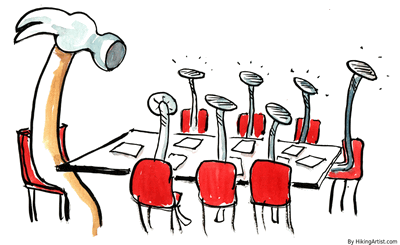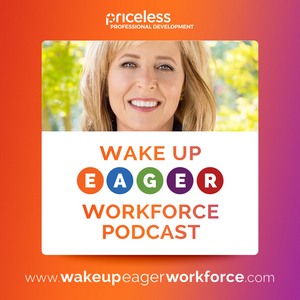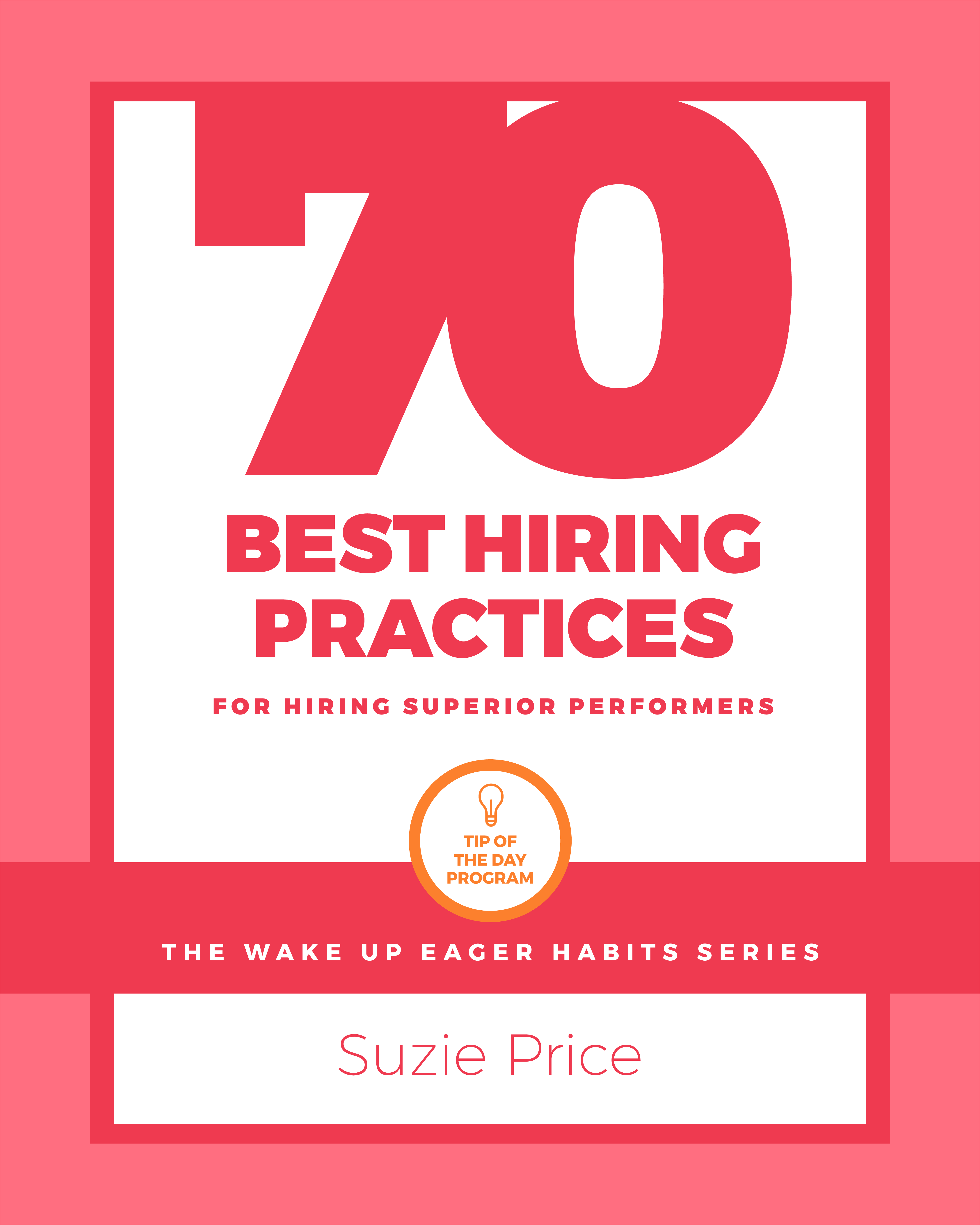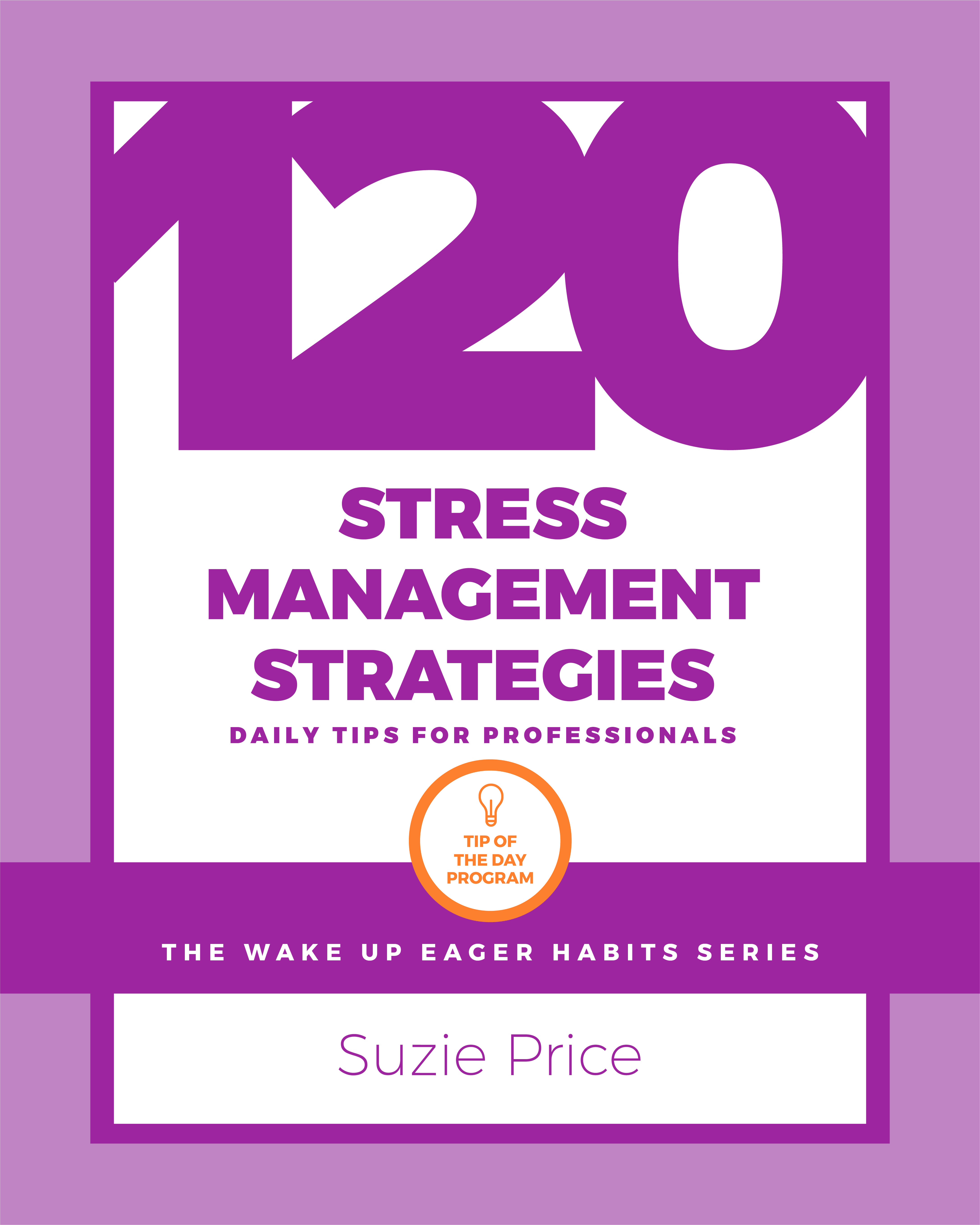The Know How You Need & the Tools to Get You There... Get Certified >

The 10 Most Common DISC Assessment Mistakes, Myths and Solutions
American Psychologist, Abraham Maslow wrote in 1966, "I remember seeing an elaborate and complicated automatic washing machine for automobiles that did a beautiful job of washing them. But it could do only that, and everything else that got into its clutches was treated as if it were an automobile to be washed. I suppose it is tempting, if the only tool you have is a hammer, to treat everything as if it were a nail."

Maslow is referring to the 'law of the instrument', a cognitive bias that involves an over-reliance on a familiar tool.
And the familiar tool that trainers and consultants everywhere over-rely on, in my opinion, is the communication style profile - the DISC assessment, a tool that's produced by thousands of companies all over the world and used by millions for numerous purposes. From wanting to know more about an individual's behavior style to finding the right fit for a particular job, and everything in between,DISC is an important and vital tool.
But as Maslow noted, any tool that's popular and widespread can be overused and common mistakes and misconceptions arise. Here are the 10 most common DISC Assessment mistakes and myths, as well as solutions and truths for each.
Download a PDF of these 10 Mistakes and Myths, Here.
The 10 Most Common DISC Mistakes and Myths, and Solutions and Truth to Consider
Mistake/Myth #1: DISC is a complete personality profile.
While DISC is commonly perceived as a type of personality test (because it's often incorrectly marketed this way), it's actually a behavioral assessment. Understanding this difference is vital. DISC explores four traits within our personality, but the term "personality" is an all-encompassing word that goes far beyond the scope of four DISC behavioral traits.
Personality is much MORE than behavior and includes things like values, beliefs, sense of humor, character, ethics, temperament, emotional maturity, thought process and communication style. DISC is not a complete measure of who we are, but simply one aspect of what makes us unique. It describes the "how" we prefer to act and communicate.
- Solution/Truth: Our research reveals that when using:
---One science/assessment, like DISC, you get 60% accuracy.
---Two sciences/assessments, DISC and Motivators, you get 74% accuracy.
---Three sciences/assessments and you jump all the way to 94% accuracy.
The Department of Labor recommends that when using Assessments to make management and hiring decisions, you should have at least three views (sciences) of the person, and that assessments should make up no more than 30% of any management decision.
Review my overview article on the three tools we use (TriMetrix): The Three Best Leadership Assessment Tools where you'll see examples and uses for two and three science assessments, here.

Mistake/Myth #2: All DISC suppliers are offering the same product.
The DISC theory originally created by William Marston has evolved into many different versions sold around the world; each using different terminology, questionnaires, training methods, and of course, levels of accuracy.
Many of the major sellers of DISC around the world only offer one product - DISC. As shared in Mistake #1, this approach is limiting.
It's critical to examine multiple angles and dimensions of human performance including behaviors, motivation, competencies, acumen and emotional intelligence. This provides individuals with better understanding of others and a broader method to be more effective in the workplaces.
- Solution/Truth: Choose a tool like the TriMetrix HD Talent report - a tri-modal tool that measures three sciences (94% accuracy). It goes beneath the surface and measures a person's motivators, values, mental and emotional conditioning and decision-making tendencies. A tool like this shares so much MORE than 'Style', and can help you make better hires and pinpoint specific development needs. (Reminder: Assessment results should be used as <30% of any decision.)
Mistake/Myth #3: DISC tells you who will be a superstar or dud performer.
Probably the most common error made in using the DISC model occurs when someone assumes that a DISC profile will explain whether or not a person will succeed or fail in a job.
DISC ONLY measures common behavioral tendencies — not skills. DISC does not predict job success.
A person with any type of DISC profile can succeed in any type of profession. It's important to remember DISC is only one part of the total picture and there are many other elements that affect job performance.
- Solution/Truth: Read this Case Study about how one company uses assessments to help them pick the superstar performers and coach their all of their leaders.
Mistake/Myth #4: Making general assumptions based solely on primary behavioral style.
Behavioral style is just one of many indicators of a person's potential behavior, but it is only one factor. For example, some sales people believe it is important for people in their trade to have a high influence score, commonly known in DISC language as a "high I."
The logic is straightforward enough: people with a high influence score like interacting with people; sales and leading others requires a lot of interaction with others. Therefore, high l's are built for selling and/or leading.

Learning Bursts, Insights and Inspiration on the Go: Listen to our podcast while commuting to and from work and while doing errands... Get our Free Apple or Android App Here.
While many high l's ARE good at dealing with people — they can be friendly, sociable, warm and enthusiastic. But some people with high l style tendencies can be disruptive, unruly, impulsive and noisy.
Therefore, not all people with a high Influence score behave the same way.
The difference may be found in a what in a
person values, their sales/leadership skills and experience, and how they
think and make decisions. It's clear that we have a bit of a theme going
here - measure more than DISC style to get an accurate picture of how a person will perform.
- Solution/Truth: Learn more about each of the assessment tools we recommend by listening to these Assessment-Related Wake Up Eager Workforce Podcast Episodes.
----TriMetrix Assessment-Related Episodes, here.
----DISC and Motivator Assessment-Related Episodes, here.
Mistake/Myth #5: There isn't proof that assessments are accurate.
- Solution/Truth: Solid assessment providers have undergone extensive research to prove validity and reliability. Watch this video: Five Questions to Ask About Assessment Validity and Three Signs Your Assessment May Not Be As Valid As You Think
- Review the Research we conduct in this Podcast: Unmasking and Retention and meet our Research Team.

\Mistake/Myth #6: The results can be manipulated.
- Solution/Truth: If a person tried to manipulate the Acumen portion of the TriMetrix assessment, the questionnaire flags the discrepancy and the data reveals the misrepresentation. That's because this part of the tool has no face-validity (which means you can't guess the "right" answer), and so each person is faced with having to answer using their real judgment and viewpoint. The math behind this reveals how they think and make decisions.
Mistake/Myth #7: Taking an assessment is time consuming.
- Solution/Truth: You do not need a lengthy test to uncover dramatic insights from within a person, you just need to ask the right questions. Assessments are completed online and the time spent completing them, per person, is anywhere from 10 minutes to 30 minutes (depending on the set of tools selected for their situation). That small amount time that SAVES time when it helps you avoid a hiring mistake and/or helps pinpoint the EXACT area of development needed to ensure higher productivity and performance.
Mistake/Myth #8: Assessments can be discriminatory.
- Solution/Truth:
Make sure the assessments you use are EEOC and OFCCP Compliant. Review our TriMetrix Adverse Impact Report, here.
Mistake/Myth #9: Assessment results don't change.
- Solution/Truth:
On the DISC and Motivators Assessments a person's natural Style and top Drivers do not usually change much, unless they've experienced a traumatic life event.
And changing who a person is NOT the goal! What we do want though - from these two tools/assessments - is to build self and other awareness so that each person can learn to adapt and manage any blind spots (and overuse of their strengths and essential build communication and emotional intelligence) so that they can be more effective and in tune with others.
Now, a person CAN grow and develop how they think and make decisions, as measured in the Acumen and Personal Skills Assessment (the third science in our TriMetrix Assessment). When a person grows their Acumen and Personal Skills scores, we can see the benefit of these changes in individual effectiveness and productivity. (All three areas: DISC, Motivators and Acumen are measured in the TriMetrix Assessment.)
Mistake/Myth #10: Assessments are too expensive.
- Solution/Truth:
You purchase a house, car, life and health insurance, right? Why not
protect your company by insuring your hiring practices and directing
your development programs toward specific needs.
Our clients range in size from a small business, locally owned with a five person team to international companies with thousands of employees. Not only are assessments affordable, their findings are invaluable.
LET'S TALK:
Contact us to schedule a Complimentary Consulting Call
or to ask questions about any of our Hiring,
Coaching, Training and Assessment services.




